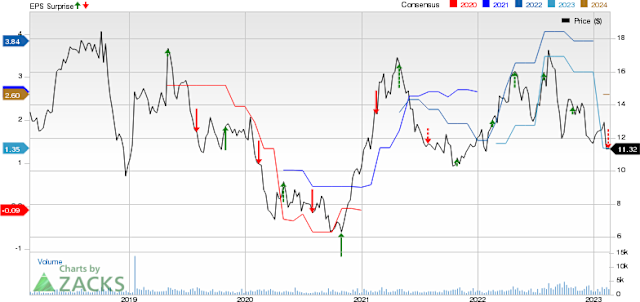How Middle Management Drives Company Performance And Employee Satisfaction

Table of Contents
The Bridge Between Leadership and Employees
Middle management acts as the critical link, communicating strategic goals from senior leadership to frontline employees and vice versa. They are the interpreters, translating complex directives into clear, actionable tasks and ensuring everyone is working towards the same objectives. Effective communication is paramount in this role.
- Clear and concise communication of goals and expectations: Middle managers must articulate company objectives in a way that resonates with their teams, setting clear, measurable, achievable, relevant, and time-bound (SMART) goals.
- Regular feedback sessions to address concerns and provide support: Open dialogue is key. Regular one-on-one meetings and team check-ins allow middle managers to address employee concerns, provide support, and offer guidance.
- Open channels for two-way communication, fostering a collaborative environment: Creating a culture of open communication, where employees feel comfortable sharing ideas and feedback, is essential for a successful middle management team. This involves actively soliciting input and encouraging open dialogue.
This ensures alignment across the organization, minimizing misunderstandings, maximizing efficiency, and fostering a sense of shared purpose. Strong middle management leadership directly impacts employee morale and productivity because it ensures everyone understands their role and contribution to the overall organizational goals.
Fostering Employee Engagement and Motivation
Middle managers are directly responsible for the day-to-day well-being and motivation of their teams. Their leadership style significantly impacts employee engagement and retention. Key strategies for boosting employee engagement include:
- Providing regular recognition and rewards for achievements: Acknowledging and rewarding employees' contributions, both big and small, fosters a sense of appreciation and motivates them to continue performing well.
- Delegating effectively and empowering employees to take ownership: Empowering employees to take ownership of their work increases their engagement and job satisfaction. Effective delegation involves providing clear expectations, the necessary resources, and the autonomy to complete the task.
- Creating a supportive and inclusive work environment: A positive and inclusive work environment promotes collaboration and teamwork. Middle managers should actively foster a culture of respect, understanding, and mutual support.
- Investing in employee development and growth opportunities: Providing opportunities for professional development demonstrates a commitment to employees' growth and enhances their job satisfaction. This can include training programs, mentorship opportunities, or cross-functional assignments.
- Offering mentorship and guidance to help employees reach their full potential: Mentoring and coaching can provide invaluable support and guidance, helping employees to develop their skills and advance their careers.
High employee engagement directly translates into increased productivity, reduced employee turnover, and improved overall company performance. This makes investing in effective middle management a crucial element in any successful business strategy.
Driving Operational Efficiency and Productivity
Effective middle management plays a vital role in optimizing operational processes and ensuring the smooth functioning of the organization. This requires a focus on continuous improvement and data-driven decision-making.
- Implementing efficient workflow processes and systems: Streamlining workflows and using appropriate technology can significantly improve efficiency and reduce bottlenecks.
- Identifying and resolving bottlenecks that hinder productivity: Middle managers should actively identify and address any obstacles hindering productivity, such as inefficient processes, lack of resources, or communication breakdowns.
- Monitoring key performance indicators (KPIs) to track progress and identify areas for improvement: Regularly monitoring KPIs allows middle managers to track progress towards goals, identify areas needing improvement, and make data-driven decisions.
- Utilizing data-driven decision making to enhance efficiency: Using data to inform decisions ensures that improvements are based on evidence and have a measurable impact.
Improved operational efficiency leads to cost savings, increased output, and a stronger bottom line – all directly attributable to the effectiveness of the middle management team.
Developing Future Leaders and Talent
Strong middle management teams are crucial for talent development within the organization. They act as mentors and coaches, identifying and nurturing future leaders.
- Identifying high-potential employees and providing them with opportunities for advancement: Middle managers should proactively identify high-potential employees and provide them with challenging assignments and opportunities for growth.
- Mentoring and coaching employees to develop their leadership skills: Providing mentorship and coaching helps employees develop the skills and experience necessary to take on leadership roles.
- Creating a culture of learning and development: Fostering a culture where continuous learning is valued encourages employees to develop their skills and advance their careers.
Investing in employee growth ensures a robust talent pipeline for future leadership roles and reduces reliance on external recruitment, saving the company time and resources in the long run.
The Impact of Middle Management on Company Culture
Middle management significantly influences the overall company culture. Their leadership style, communication approach, and actions set the tone for their teams.
- A positive and supportive management style fosters a culture of collaboration, innovation, and employee well-being. This improves employee retention and overall satisfaction.
- Conversely, a toxic management style can lead to low morale, high turnover, and decreased productivity. This is especially relevant for improving employee retention rates.
- Middle managers are role models for their teams and therefore shape behavior and expectations. Their actions and attitudes directly impact the overall work environment.
Conclusion
In conclusion, the impact of effective middle management on company performance and employee satisfaction cannot be overstated. By fostering strong communication, driving operational efficiency, and cultivating a positive work environment, middle management plays a pivotal role in achieving organizational success. Investing in developing and supporting your middle management team is an investment in the future of your organization. Want to learn more about maximizing the potential of your middle management team? Contact us today for expert advice and strategies for improving your middle management effectiveness.

Featured Posts
-
 Australian Fiscal Policy Outlook Goldman Sachs Assessment Of Labor And Opposition
Apr 25, 2025
Australian Fiscal Policy Outlook Goldman Sachs Assessment Of Labor And Opposition
Apr 25, 2025 -
 Synduality Echo Of Ada Season 1 Release Date And Trailer
Apr 25, 2025
Synduality Echo Of Ada Season 1 Release Date And Trailer
Apr 25, 2025 -
 Auto Dealers Double Down On Opposition To Electric Vehicle Regulations
Apr 25, 2025
Auto Dealers Double Down On Opposition To Electric Vehicle Regulations
Apr 25, 2025 -
 Mercer International Inc Q4 2024 And Year End Results 0 075 Dividend Announced
Apr 25, 2025
Mercer International Inc Q4 2024 And Year End Results 0 075 Dividend Announced
Apr 25, 2025 -
 The Rise Of Disaster Betting Examining The Los Angeles Wildfire Example
Apr 25, 2025
The Rise Of Disaster Betting Examining The Los Angeles Wildfire Example
Apr 25, 2025
Latest Posts
-
 Addressing Outdated Apps To Achieve Ai Driven Growth
Apr 30, 2025
Addressing Outdated Apps To Achieve Ai Driven Growth
Apr 30, 2025 -
 Outdated Business Applications A Barrier To Ai Advancement
Apr 30, 2025
Outdated Business Applications A Barrier To Ai Advancement
Apr 30, 2025 -
 Are Your Outdated Apps Blocking Your Ai Transformation
Apr 30, 2025
Are Your Outdated Apps Blocking Your Ai Transformation
Apr 30, 2025 -
 J D Vances Snl Future Questioned By Bowen Yang
Apr 30, 2025
J D Vances Snl Future Questioned By Bowen Yang
Apr 30, 2025 -
 The Impact Of Doug Emhoffs Dismissal From The Holocaust Memorial Council
Apr 30, 2025
The Impact Of Doug Emhoffs Dismissal From The Holocaust Memorial Council
Apr 30, 2025
